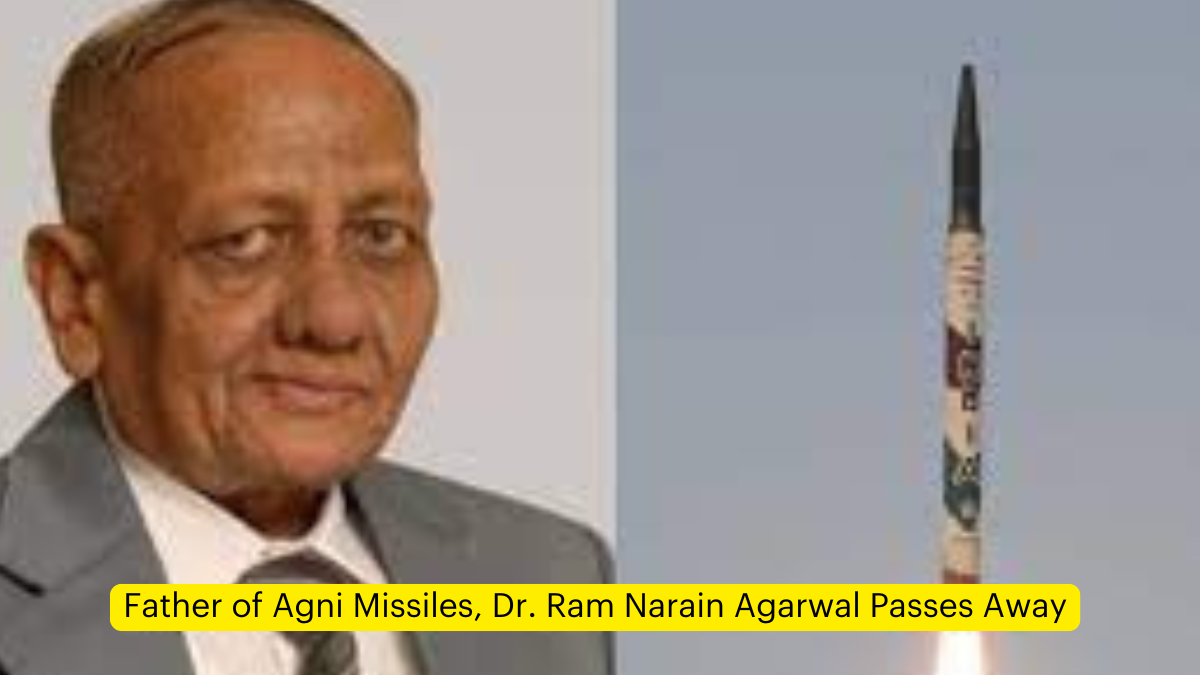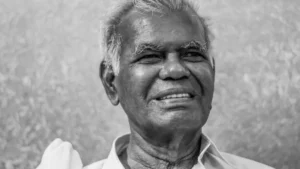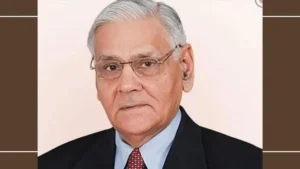Dr. Ram Narain Agarwal, a renowned Indian scientist and the driving force behind India’s missile program, passed away on Thursday in Hyderabad at the age of 84. Known affectionately as the ‘Father of Agni Missiles‘, Dr. Agarwal’s contributions to India’s defence capabilities have been nothing short of revolutionary.
Early Career and Collaborations
Dr. Agarwal’s illustrious 22-year career in defence research saw him working alongside other luminaries in the field, including Dr. Arunachalam and former President of India, Dr. APJ Abdul Kalam. This collaboration of brilliant minds laid the foundation for India’s robust missile defense system.
Contributions to Missile Technology
During his tenure, Dr. Agarwal made significant strides in various aspects of missile technology:
- Established re-entry technology
- Developed all-composite heat shields
- Advanced onboard propulsion systems
- Innovated guidance and control systems for missiles
These technological advancements were crucial in positioning India as a formidable player in global defence.
The Agni Missile Program
Integrated Guided Missile Development Programme
The Agni missile was the crown jewel of the Integrated Guided Missile Development Programme, launched by the Indian government in 1983. This ambitious project also included the development of other missiles:
- Prithvi
- Akash
- Nag
- Trishul
However, it was the Agni series that truly showcased India’s missile capabilities on the world stage.
Agni V: A Strategic Milestone
One of the most significant achievements under Dr. Agarwal’s leadership was the development of Agni V, a nuclear-capable, intermediate-range ballistic missile. With a striking range exceeding 5,000 kilometers, Agni V dramatically enhanced India’s strategic position and defence preparedness globally.
Establishment of the Advanced Systems Laboratory (ASL)
Founding and Leadership
Dr. Agarwal’s vision extended beyond individual missile projects. He played a pivotal role in establishing the Advanced Systems Laboratory (ASL) in Hyderabad, serving as its founder-director until his retirement in 2005. The ASL has since become a cornerstone of India’s defence research infrastructure.
Legacy at ASL
Under Dr. Agarwal’s guidance, the ASL became a hub for cutting-edge research and development in missile technology. His leadership ensured that India continued to make strides in defence technology long after his retirement.
Notable Achievements and Recognitions
Awards and Honors
Dr. Agarwal’s contributions to science and national security were widely recognized. Some of his notable awards include:
- Padma Shri in 1990
- Padma Bhushan in 2000
- Lifetime Achievement Award for contributions to aerospace and Agni in 2004
- DRDO Technology Leadership Award
- Chandrasekhara Saraswati National Eminence Award
- Biren Roy Space Sciences Award
Key Milestones in Missile Development
Agni-2 Weaponization
In 1995, Dr. Agarwal was appointed Programme Director of Agni for weaponisation and deployment of Agni-2. This marked a significant step forward in India’s missile capabilities.
Road-Mobile Launch Capability
By 1999, under Dr. Agarwal’s leadership, the team had developed a new version of Agni with road-mobile launch capability and enhanced strike distance from Agni-1.
Agni-3 Demonstration
The successful demonstration of the powerful Agni-3 missile weapon system placed India in an elite group of nations with long-range, nuclear-capable missile technology.




 T.K. Oommen Passes Away at 88: A Pillar ...
T.K. Oommen Passes Away at 88: A Pillar ...
 A Century of Struggle: CPI Veteran R Nal...
A Century of Struggle: CPI Veteran R Nal...
 End of an Era: Steel Veteran Jatinder Me...
End of an Era: Steel Veteran Jatinder Me...








